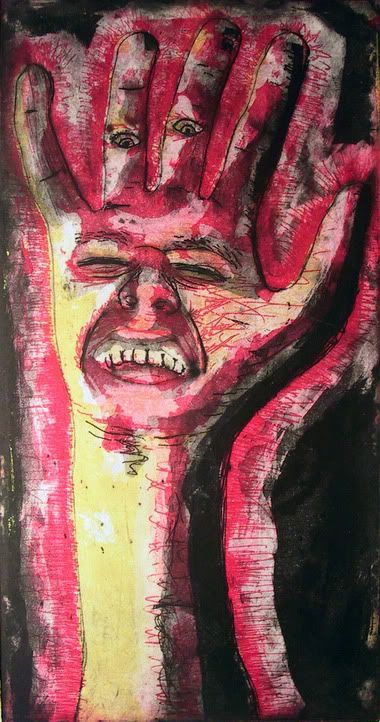A few years ago I took a class called English 111 (It was required). I did not like this class….In fact, it made me want to die. Somewhere along the way school taught me to hate reading and to hate writing even more. This hatred developed into extreme debilitating anxiety when I had to write papers. Miraculously, I survived the class (just barely) and it was time for our final. I honestly did not care if I passed the class or not, and I wanted to give the teacher a piece of my mind. I ended up getting a C in the class. Ironically, I later discovered that I actually do somewhat enjoy discussing the deeper meanings of a story/movie on my own terms, not in the artificial environment of the classroom. The following is the essay I wrote for my final.
I feel that my grade for this class should be a D.
First of all, it can not be stressed enough that I am NOT an English major. This fact has two implications. The first implication is that the papers I write should not be held up to the same standard as someone who is, in fact, an English major. The second and more important implication is that there is no reason at all that I need to know how to write an analytical essay about literature. I repeat NO REASON AT ALL.
One must ask oneself, what closed minded asshole decided that writing analytical essays about literature is so important that it must be taught to every student regardless of whether it has any importance whatsoever in that person’s chosen career. For example I am currently declared as a computer science major. A computer scientist must know how to write software, understand how computers work, and many other computer related tasks. Now, maybe I’m just dumb, but I don’t see “write analytical essays about literature” anywhere in that. I will admit that although computer science is my declared major, it is filmmaking that really excites me, and there is in fact some writing involved in that. However, the writing involved in filmmaking is very different from the writing involved in writing analytical essays about literature. The writing involved in filmmaking is creative. Did he say creative? Yes I said creative! Wow creativity...what a brilliant idea!
Now, it is probably apparent that I’m breaking many of the rules that are meant to be followed when writing analytical essays about literature. This is because I am completely ignoring them. Why? Because these rules are bullshit. Isn’t it ironic that when writing analytical essays about literature, almost all of the rules we are required to follow are broken by the same literature we are required to write about. The literature we read is creative and often exciting. But then we must write about it and our creativity is stifled by generalized rules and guidelines. Apparently we are not ever allowed to say “you” in a formal paper because it puts our authority into question. Well, first of all I am no authority on the matter anyway, so am I supposed to misrepresent myself as an authority? Second of all, why must the paper be formal? Isn’t it more interesting and creative to engage the reader? And what the hell is wrong with asking questions in your paper?
When I am required to write an analytical essay about literature, I agonize over it. Every sentence is excruciatingly painful to write. To be quite honest, it makes me want to slit my wrists and bash my head on the wall repeatedly. But I don’t do that, I reluctantly accept my fate and do as society has said I should. I suffer and agonize over the essay until I get my 5 pages, double spaced, 1 inch margins, name and date, title, MLA format, quotes, topic sentences, transitions, thesis statement (last sentence of introduction), work cited, no dropped quotes, write and revise...and oh yea make some good points if you get around to it.
So I’ve tried to play by the rules when writing my analytical essays about literature, ridiculous and creativity stifling to as they may be. In doing this, I have become no better a writer than I was before I took the class. Because of this I should probably fail the course. However, I am able to see that most of the rules we have crammed down our throats are just bullshit and should be disregarded. For this reason I believe should pass with a D. I realize I’ll probably get an F on this exam at least, but grades are so artificial anyway...and I got a cool movie idea out of it, and that has more relevance to MY life than writing analytical essays about literature.




